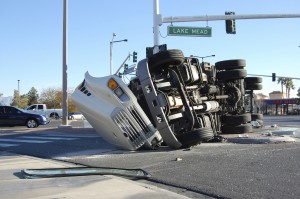Michigan law requires that your car insurance company pay your wage losses and medical bills resulting from your injuries. Other economic losses may also include follow up treatments, therapy and medications. There are three common ways to get your medical bills paid when you are hit by a car as a pedestrian or if you are in a car accident.
- If you have car insurance, you should immediately file a claim with your insurance carrier. They are legally responsible to pay your medical bills, prescription costs, mileage, nursing, wage loss and household assistance for cooking, cleaning and yardwork. At Slusky and Walt, we can help you with this process. Contact us for answers to your common questions. For Example:
How do I know if my insurance company will pay what they should?
What about compensation for pain and suffering?
How long should this process take?
- If you do not have car insurance and a family member who lives in your household has car insurance, you will be covered under their policy and a claim with that insurance company should be filed immediately after the accident. We can help if you cannot collect the benefits that you deserve. Typical questions you might have are:
The insurance company is giving me the run around, what should I do?
How do I find out the amount of money I can collect in wage losses?
Between my health insurance and car insurance, who will pay what?
- If you or any family member does not have car insurance, you must file a claim with the insurance company of the car that hit you. At Slusky and Walt, we can assist you in filling that claim.
I am having trouble collecting, how do I collect from the insurance company?
How bad do my injuries have to be to sue the driver at fault for my pain and suffering?
How long can I collect my wage losses after the accident?
At Slusky and Walt, we are injury experts and can help you through the often confusing process of dealing with the insurance company. Call us so we can help answer your questions.
1-800 ABE-HELPS or 1-800-223-4357.









 An auto accident can cause serious, even fatal, injuries to the victims involved in the collision. Sometimes those injuries are obvious immediately following the accident while in other cases the injuries (or the severity of the injuries) do not present themselves until weeks, even months, after the collision. If you have been injured in a Saginaw, Michigan auto accident, or you are the surviving family member of a victim who was fatally injured in a collision, you could be entitled to compensation for your injuries or loss. While the law provides a mechanism by which victims can be compensated by a negligent party, the law also limits the time within which victims of auto accidents must pursue that compensation. Failing to pursue compensation in the time frame allotted by law means a victim will forever lose the right to compensation.
An auto accident can cause serious, even fatal, injuries to the victims involved in the collision. Sometimes those injuries are obvious immediately following the accident while in other cases the injuries (or the severity of the injuries) do not present themselves until weeks, even months, after the collision. If you have been injured in a Saginaw, Michigan auto accident, or you are the surviving family member of a victim who was fatally injured in a collision, you could be entitled to compensation for your injuries or loss. While the law provides a mechanism by which victims can be compensated by a negligent party, the law also limits the time within which victims of auto accidents must pursue that compensation. Failing to pursue compensation in the time frame allotted by law means a victim will forever lose the right to compensation.